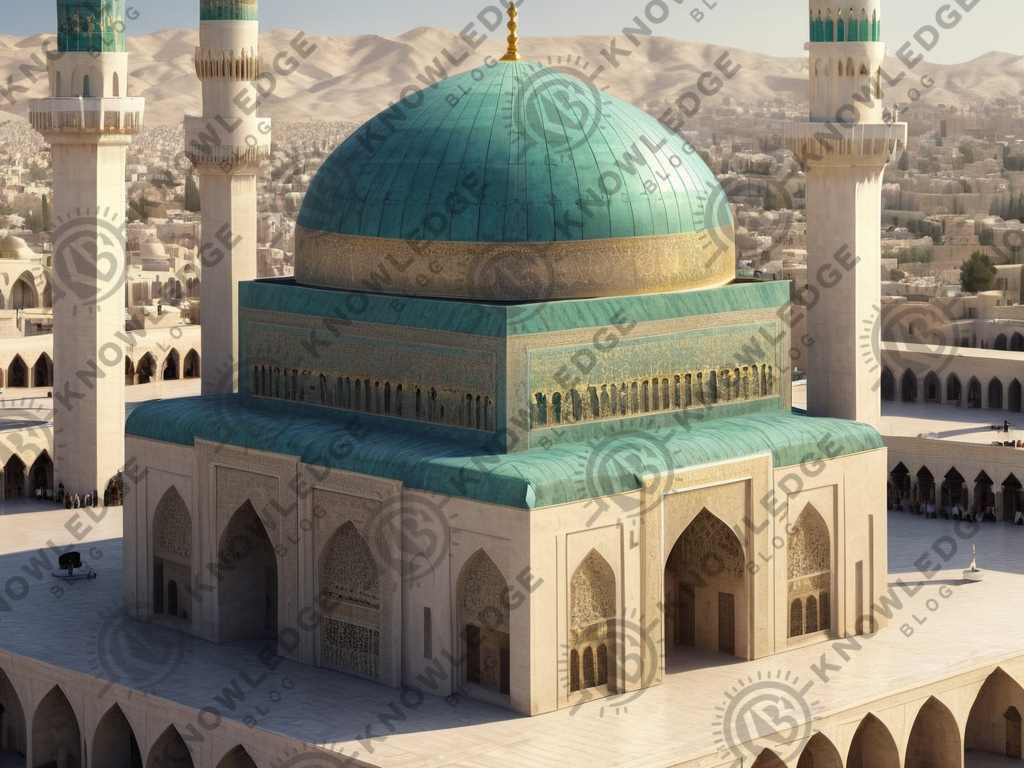How Do You Go to Heaven in Islam

Understanding the path to heaven is a fundamental aspect of Islamic belief, providing guidance on how to live a life that pleases Allah and earns the ultimate reward of Jannah (heaven).
How do you go to heaven in Islam? is important question that been asked but a lot of Muslims. This article explores the key elements that pave the way to attaining heaven in Islam.
Table of Contents
ToggleThe Heaven in Islam
Jannah is the ultimate reward and eternal abode for the faithful and righteous believers. It is depicted as a place of unimaginable beauty, peace, and joy, where believers will experience the pleasure of Allah and live in eternal bliss. The Quran and Hadith provide vivid descriptions of Jannah, highlighting its significance and the path to attaining it.
Description of Jannah
Jannah is described in the Quran as a paradise filled with lush gardens, flowing rivers, and abundant blessings.
Some key features of Jannah include:
- Gardens and Rivers: Jannah is often depicted as having beautiful gardens with trees bearing fruits of all kinds, and rivers of water, milk, honey, and wine that flow perpetually.
- Eternal Youth and Beauty: In Jannah, inhabitants will be granted eternal youth and beauty. They will be adorned with fine garments, jewelry, and will enjoy a state of perfect health and happiness.
- Palaces and Dwellings: Believers will reside in magnificent palaces made of gold, silver, and precious stones, each reflecting the deeds and status of its inhabitant.
- Abundant Food and Drink: There will be an abundance of delicious food and drink, provided without any effort. The inhabitants will have whatever their hearts desire.
Levels of Jannah
Jannah is described as having multiple levels, each representing a different degree of reward. The higher the level, the greater the reward and proximity to Allah.
Some of these levels include:
Firdaus: The highest level of Jannah, also known as Paradise. It is where the most righteous believers, including prophets, reside.
Other Levels: There are various other levels, with each level representing a different degree of closeness to Allah. The deeds and faith of a believer determine their placement in Jannah.
Related Article: What Is Muslim Religion Based On
The Hell in Islam
Hell, known as Jahannam in Islam, is the ultimate place of punishment for those who reject faith, commit grave sins, and lead a life of disobedience to Allah. The Quran and Hadith provide detailed descriptions of Jahannam, emphasizing its severe nature and the importance of living a righteous life to avoid it.
Description of Jahannam
The Quran and Hadith provide vivid descriptions of Jahannam, highlighting its horrors and the suffering of its inhabitants:
- Fire and Heat: Jahannam is primarily described as a blazing fire that burns intensely. The heat is beyond any earthly comparison, designed to inflict severe pain.
- Scorching Wind and Boiling Water: In addition to fire, inhabitants of Jahannam will face scorching winds and be given boiling water to drink, which will intensify their torment.
- Chains and Shackles: The inhabitants will be bound with chains and shackles, emphasizing their helplessness and the inescapable nature of their punishment.

How Do You Go to Heaven in Islam
The pathway to Jannah is well-defined through a combination of beliefs, practices, and moral conduct as outlined in the Quran and the teachings of Prophet Muhammad (peace be upon him).
Belief in the Oneness of God (Tawhid)
The foundation of Islamic belief is Tawhid, the oneness of God. Allah is as the only deity, rejecting any form of polytheism or associating partners with Allah, known as shirk. This fundamental belief is encapsulated in the Shahada, the declaration of faith: “There is no god but Allah, and Muhammad is His messenger of allah.” Firm belief in Tawhid is the first and most crucial step towards attaining heaven in Islam.
Following the Five Pillars of Islam
- Shahada (Faith): The declaration of faith, affirming the oneness of Allah and recognizing Muhammad as His prophet.
- Salat (Prayer): doing five prayers a day is essential. These prayers are a direct link between the worshipper and Allah, fostering discipline, spirituality, and mindfulness.
- Zakat (Charity): Giving a portion of one’s wealth to those in need purifies wealth and helps build a just and equitable society. It is a reflection of one’s compassion and responsibility towards the community.
- Sawm (Fasting during Ramadan): Fasting during the holy month of Ramadan instills self-discipline, empathy for the less fortunate, and gratitude.
- Hajj (Pilgrimage): Performing the pilgrimage to Mecca at least once in a lifetime, if physically and financially able, demonstrates devotion and unity among Muslims.
Repentance and Seeking Forgiveness
Humans are inherently fallible, and Islam acknowledges this by encouraging repentance (Tawbah). Sincere repentance involves feeling genuine remorse for past sins, ceasing the sinful behavior, and making a firm resolution not to return to it. Seeking Allah’s forgiveness and making amends for wrongdoings is crucial.
Adhering to the Sunnah of Prophet Muhammad
Following the Sunnah, the teachings and practices of Prophet Muhammad, is vital in guiding a Muslim’s life. The Hadiths, which document the sayings and actions of the Prophet, provide practical examples of how to live righteously. Emulating the Prophet’s character, such as his kindness, patience, and humility, brings one closer to Allah and increases the likelihood of entering heaven.
Avoiding Major Sins (Kabira)
Islam identifies major sins, known as Kabira, which have severe consequences if not repented for. Muslims are urged to avoid these major sins and seek immediate forgiveness if they falter. The avoidance of Kabira sins, coupled with repentance, is essential.
Related Article: What Is the Holy Quran
Conclusion
Attaining heaven in Islam involves a holistic approach encompassing unwavering faith, consistent practice of religious duties, good moral conduct, and sincere repentance.
By believing in the oneness of Allah, adhering to the Five Pillars of Islam, performing good deeds, following the Prophet’s example, avoiding major sins, and maintaining faith in the hereafter, Muslims strive to achieve the ultimate reward of Jannah.






